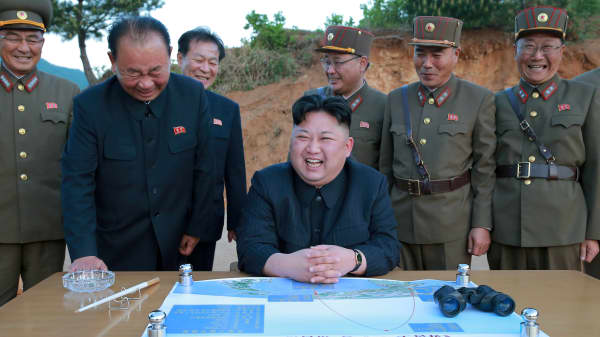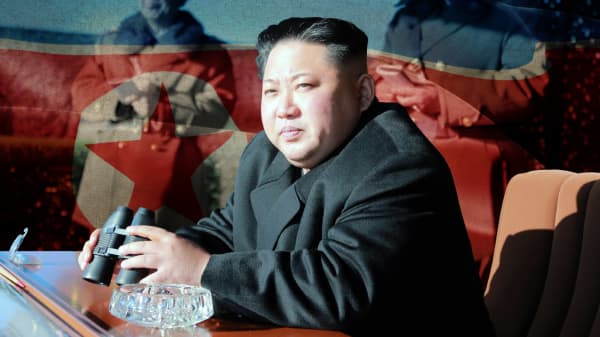Of course, it would be better if the North had neither nuclear weapons nor ICBM's. We have known this. Our anti-proliferation efforts have definitely impeded the North' acquisition of these weapons. But today, after decades of relentless North Korean efforts, assisted by a few other states, they are now a nuclear power.
And there is no military option short of general warfare in Korea — with the likelihood of millions of casualties — that could eliminate their nuclear and missile capabilities. As for diplomacy, the example of Moamar Qaddhafi, deposed and murdered a few years after giving up his nuclear program, no doubt makes the North even more determined to maintain their nuclear arms program.
So, this is a situation we must be prepared to live with indefinitely; setting an objective of rolling back the clock is unrealistic and ultimately unachievable. Instead we should seek strategic stability and continued U.S. deterrence in the region.
For more than a decade the U.S. has sought China's help in dealing with North Korea. But China is ambivalent at best. China doesn't want to pressure the North so strongly that its regime could collapse, unleashing a flood of refugees into China.
In addition, China no doubt would like to see U.S. forces leave South Korea; China probably believes that some level of tension on the Korean Peninsula actually promotes this Chinese objective. But China also doesn't want open warfare, which would impose huge costs and would likely end with the collapse of its North Korean buffer state. So, on balance China isn't all in to help us.
China's behind-the-scenes influence has also been diminished by Kim Jong Un's repeated purges of members of his government and family who have close ties to China or, like his brother, might replace him.
Some might worry that these purges suggest a weakened regime, a regime so unstable that it might not be deterrable, that it might deliberately launch a nuclear strike even though it would mean certain suicide. But, thus far, there is insufficient evidence to draw such a conclusion.
We have dealt with other nuclear armed potential adversaries that were at various times wracked by internal crisis, and we were wise enough not to engage in preventative nuclear warfare. When we did resort to preventative war-in Iraq in 2003-it proved to be a huge mistake.
We have to be strong and resolute, and not engage in some risky, ill-advised military action. Our objectives are best met by keeping a strong military presence in Korea, by enhancing our own strategic missile defenses, and by robust dialogue and diplomacy with North Korea itself, as well as with China and other neighboring countries.
Sharp rhetoric directed at the North doesn't help; it provokes an escalating reply whose main impact is always to frighten people and actually undercut support for a strong U.S. deterrent presence.
Commentary by Retired General Wesley Clark, a former NATO Supreme Allied Commander and a Senior Fellow at the UCLA Burkle Center. Follow him on Twitter @
GeneralClark.
For more insight from CNBC contributors, follow
@CNBCopinion
on Twitter.




